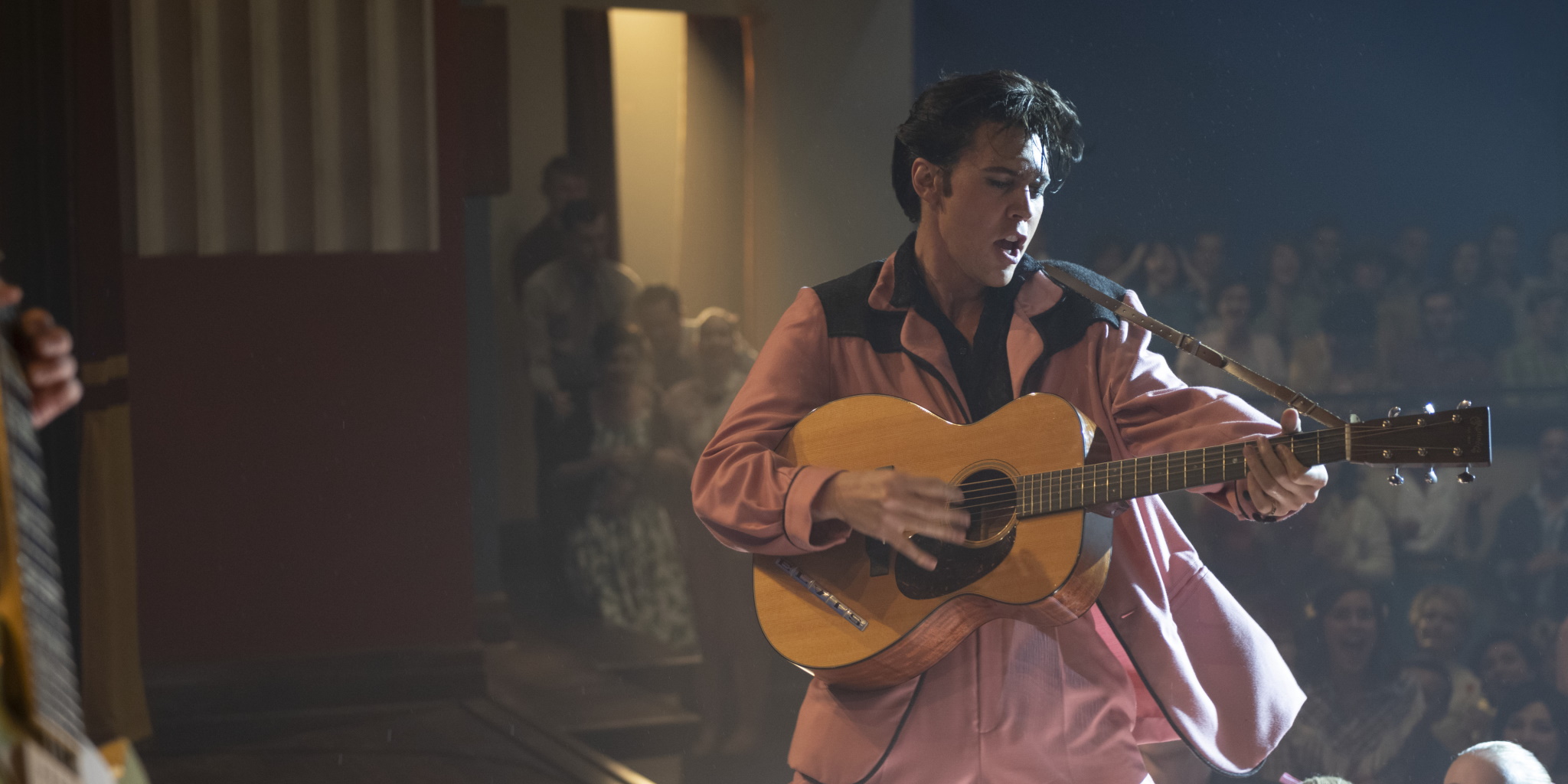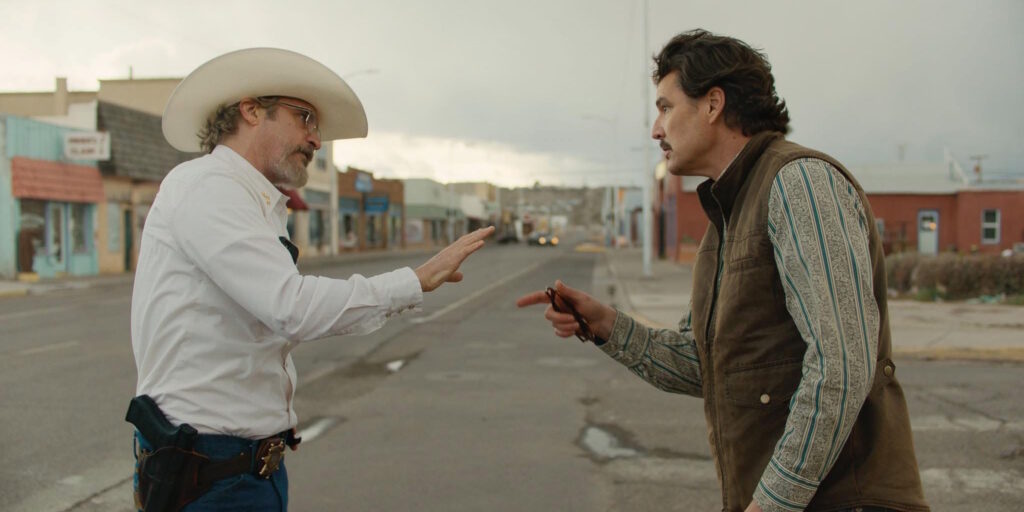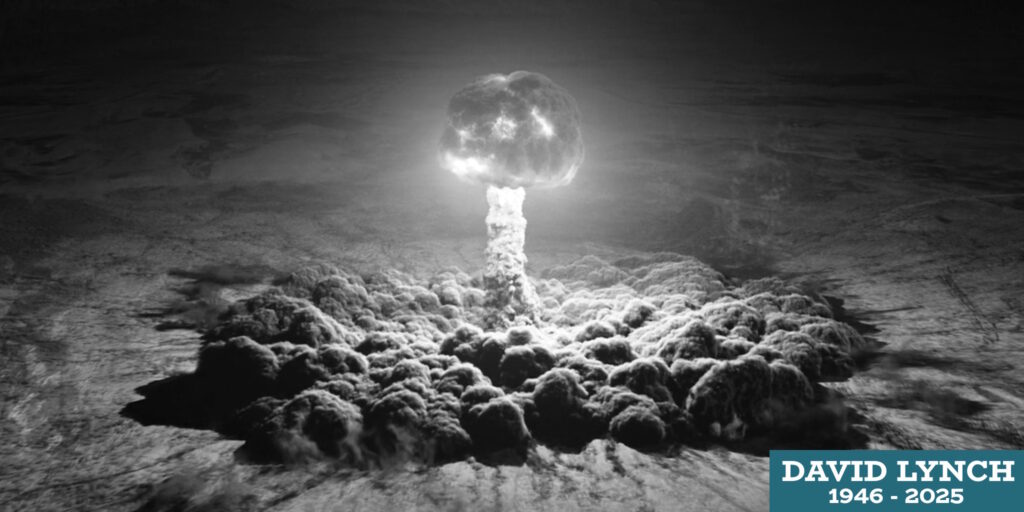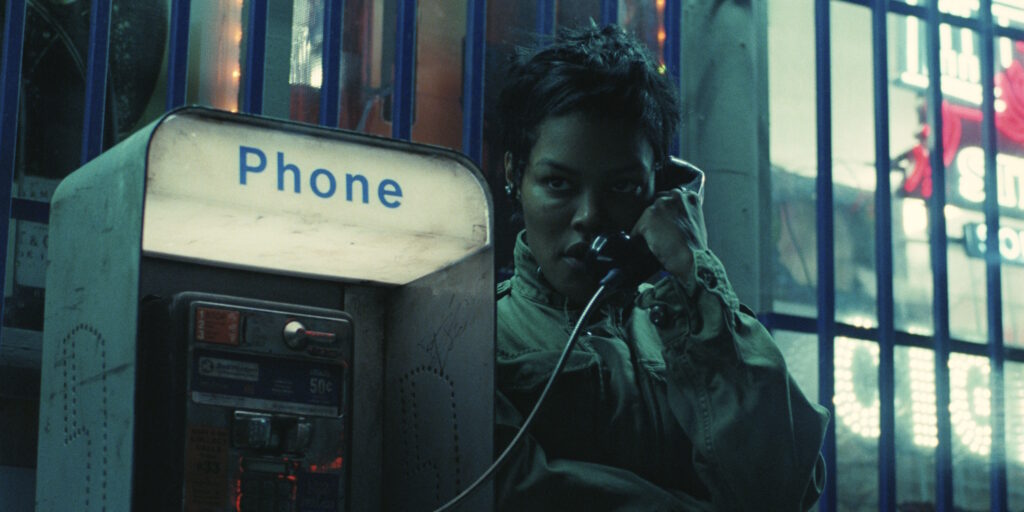[Originally published at Cinema St. Louis’ The Lens.]
Elvis Presley died at the age of 42, his once-enormous fortune nearly bled dry by a recent divorce, a debilitating opioid addiction, and the notoriously terrible business practices of one Colonel Tom Parker, Elvis’ Machiavellian manager. Parker outlived Presley by a significant (some might say unjust) margin, dying 20 years later at the age of 87. A full life, by all means, if not a fulfilling one. Director Baz Luhrmann’s Elvis picks up at the end, the night death finally came for Parker (Tom Hanks), barraging audiences with a dizzying medley of sights and sounds as this villain is carted away to a Vegas emergency room. Repeated shots of a morphine drip being fed into the dying patient’s arm effectively set the stage for the next 150-odd minutes: This is going to be a trip, and it’s not going to let up until everything goes black.
Parker’s drug-fueled reverie has him mulling over the one thing he’s been unable to shake in his old age: the notion that he killed Elvis (Austin Butler). Of all the problems that plagued the King of Rock ’n’ Roll from his humble beginnings to his bitter end, Parker — an unreliable narrator — refuses to believe he played any part in his downfall. No, no … as he sees it, he’s the one who made Elvis royalty. He thinks back to the beginning, to Presley’s start as a 20-year-old kid playing small-time gigs in and around the South in 1954. Through extensive voiceover, Parker proceeds to chart his and Elvis’ rise to fame throughout the remainder of the ’50s, from the first tour to the shiny new record deal to the increasingly crazed crowds to his feature-film debut.
The vibrancy and the rapidity of the editing in Elvis cannot be overstated. It’s especially pronounced in the opening act, where Luhrmann has Parker speeding through the key events in Presley’s rock-star ascent. The film functions as one big montage, quickly cutting from formative moment to formative moment in Elvis’ burgeoning stardom while juxtaposing them with Parker’s crooked dealings and Presley’s complicated relationship with his Black peers and their music. Martin Scorsese’s well-known “theme park” criticism regarding modern mainstream cinema feels relevant here, but not the part about Marvel movies — which, Luhrmann, despite his vulgar auteurism, is definitely above. Scorsese notes that Alfred Hitchcock films exhibit “a succession of dynamic and elegant compositions and cuts.” Luhrmann is no Hitchcock, to be sure, but what he and editors Johnathan Redmond and Matt Villa are doing here is creating a spectacle in the most maximalist sense: “an (electrifying) event created by the chemistry between the audience and the picture itself.”
Elvis’ energetic early years take up little more than a half-hour of a running time that is just shy of two hours and 40 minutes. There are still a couple of decades left to tackle, and Luhrmann goes about covering that ground in fits and starts. The story slows down, taking its time building up to Elvis’ increasing run-ins with the law and his eventual draft into military service in the late ’50s, only to fast-forward through the following decade as he marries Priscilla Beaulieu (Olivia DeJonge) and pursues a career in Hollywood. Then it slows again, crawling through the behind-the-scenes of his 1968 comeback special and the origins of his years-long residency at Las Vegas’s brand-new International Hotel before picking up the pace once more and racing toward his inevitable decline. Sticking with the theme-park comparison, it’s the Scrambler: fitfully spinning riders around, slowing them down, and speeding them up, testing their tolerance and pushing them beyond the point where they would prefer to disembark.
Similar to Luhrmann’s previous film, The Great Gatsby (2013), Elvis is held together (and held up) by a no-holds-barred performance at the center. Like Leonardo DiCaprio’s enthralling embodiment of Jay Gatsby, Austin Butler dominates the role of Elvis. It is, without question, the most astonishing part of this entire swollen epic. It’s the kind of irresistibly, glamorously campy turn moviegoers so rarely see on such a major scale these days, managing to tap into Elvis’ incomparable showmanship while (mostly) avoiding devolving into a laughable cartoon of the man. Much like DiCaprio’s Gatsby, it’s fair to assume Butler’s Elvis will be memed to no end — some out of admiration, some out of spite, but all in agreement over its status as a true phenomenon (for better or for worse).
Butler’s tenacity is particularly apparent when contrasted with Hanks’ turn as Colonel Tom Parker. (And what a bewildering turn it is.) Even with his West Virginian vernacular spoken with a Dutch slant, and despite his cartoonish fat suit and a stogie perpetually dangling from his lips, Hanks never quite disappears into his eccentric casting. The viewer is never not aware of Hanks’ constant presence, even if all they’re hearing is his voice off-screen. On paper, framing Elvis’ story through the lens of Parker’s deceit is an inventive way to tell a familiar tale. In practice, however, Hanks — as good as he can be, and as hard as he tries — just isn’t equipped for it. It’s evident from the very first glimpse of him as Parker. Coupled with his untrustworthy, poorly paced commentary, Hanks’ misguided interpretation is Elvis’ most glaring issue.
It’s far from the only issue, however. Elvis Presley as an entity still feels somewhat hollow, and for all of Butler’s strengths, not even he can manage to successfully depict the King as anything much deeper than a product, a cypher, a two-dimensional saint-turned-martyr who only ever existed as a performer on a stage. Luhrmann does his best to turn this weakness of Presley’s legacy into a strength, arguing that his love for his fans and his passion for music were truly his biggest motivations in life, but not even the soundest argument could amend the fact that there’s just not enough substance to be found in the tragic text. What is to be said about Elvis the husband? Elvis the father? Elvis the friend? Luhrmann isn’t interested in giving these questions more than a cursory glance, and the film suffers as a result of this prioritization of glitz over grit. That’s what happens with theme-park-ification, though: “(these) pictures are made to satisfy a specific set of demands, and they are designed as variations on a finite number of themes.”
Elvis is now playing in theaters everywhere.




